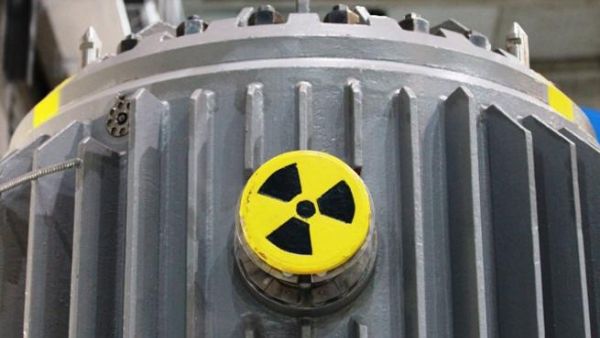Efforts to find a diplomatic solution to Iran’s disputed nuclear program appeared to get a boost Tuesday when world powers agreed to a new round of talks with Tehran, and Iran gave permission for inspectors to visit a site suspected of secret atomic work. The two developments countered somewhat the crisis atmosphere over Iran’s nuclear program, the focus of talks in Washington between President Barack Obama and Israel’s visiting prime minister.
Speaking at a news conference, Obama said he saw a “window of opportunity” to use diplomacy instead of military force to resolve the dispute over Iran’s nuclear program. He said he is focused on “crippling sanctions” already imposed on Iran and on international pressure to keep Tehran from developing a nuclear weapon. Iranians need to show they are serious about resolving the crisis, he said, adding that his policy is not one of containment but of stopping Iran from acquiring a nuclear weapon.
Obama accused his Republic critics of “beating the drums of war.” “Those folks don’t have a lot of responsibilities,” Obama said. “They are not commander in chief.” Meanwhile, U.S. Defense Secretary Leon Panetta vowed Tuesday that the United States would take military action to prevent Iran from acquiring a nuclear weapon if diplomacy fails.
“Military action is the last alternative when all else fails,” he told an annual policy conference of the biggest U.S. pro-Israel lobbying group, the American Israel Public Affairs Committee (AIPAC). “But make no mistake, when all else fails, we will act.” Speaking in Brussels, EU foreign policy chief Catherine Ashton said the five permanent members of the U.N. Security Council and Germany had agreed to a new round of nuclear talks with Iran. Previous talks have not achieved what the powers want – an end to uranium enrichment on Iranian soil. The last round ended in failure in January 2011.
Ashton said the EU hopes Iran “will now enter into a sustained process of constructive dialogue which will deliver real progress in resolving the international community’s long-standing concerns on its nuclear program.” The time and venue of the new talks have not yet been set. Britain’s foreign secretary, William Hague, said the onus would “be on Iran to convince the international community that its nuclear program is exclusively peaceful.”
This week Obama warned the U.S. would use military action to protect its interests if necessary, while appealing for time for sanctions against Iran to show their affects. In his public statements during a visit to Washington, Israeli Prime Minister Benjamin Netanyahu thanked Obama for his support but did little to counter concerns that Israel might go ahead on its own with an attack on Iran. Israel considers Iran an existential threat because of its nuclear program and its references to destruction of the Jewish state.
On Tuesday, Obama implied that Israeli pressure for urgent action was not supported by the facts, saying that a decision was not necessary within the next weeks or months. The head of the IAEA, Yukiya Amano, said Monday that his organization has “serious concerns” that Iran may be hiding secret atomic weapons work, singling out the Parchin military complex southeast of Tehran.
On Tuesday, Iran appeared to respond partially to those concerns, granting long-sought permission to IAEA inspectors to visit the Parchin compound. Iran describes the site as a military base, not a nuclear facility. The semi-official ISNA news agency stated a key condition: Such a visit would require an agreement between the two sides on guidelines.
“Given that Parchin is a military site, access to this facility is a time-consuming process, and it can’t be visited repeatedly,” ISNA quoted the Iranian statement as saying. It added that following repeated IAEA demands, “permission will be granted for access once more.”
Inspecting Parchin was a key request by senior IAEA teams that visited Tehran in January and February. Iran rebuffed those demands at the time, as well as attempts by the nuclear agency’s team to question Iranian officials and secure other information linked to the allegations of secret weapons work.
The Parchin complex has been often mentioned in the West as a suspected base for secret nuclear experiments – a claim Iran consistently denies. IAEA inspectors visited the site in 2005, but only one of four areas on the grounds, reporting no unusual activities. Last year, the IAEA’s report said there were indications Tehran has conducted high-explosives testing to set off a nuclear charge at Parchin. Iran denied the atomic activity.








